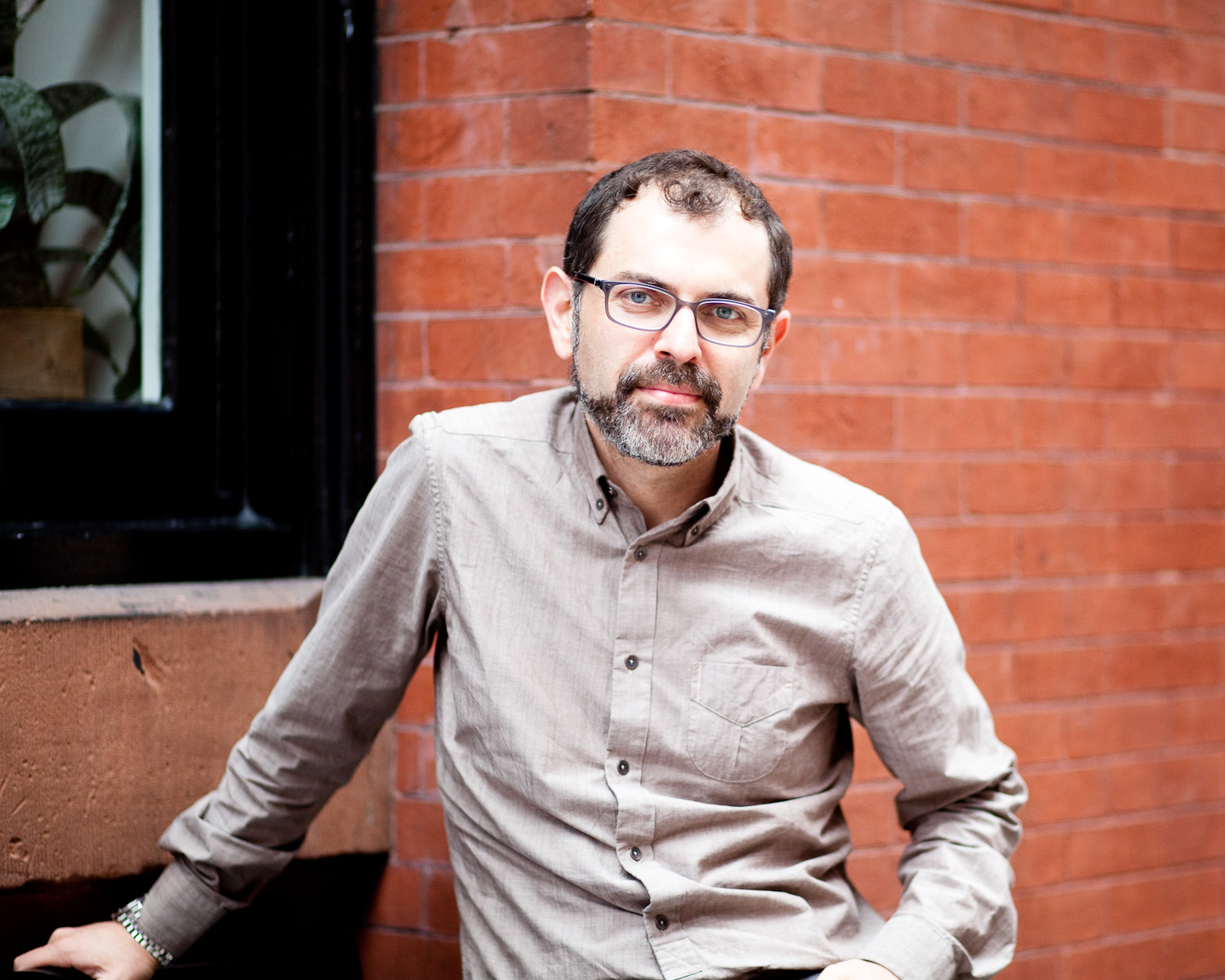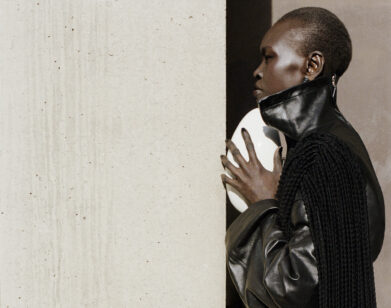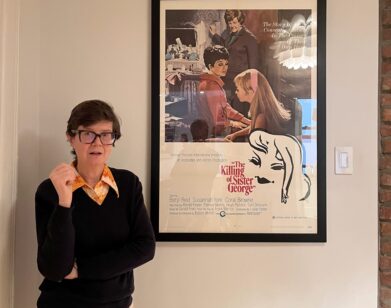Inside the Hothouse

ABOVE: BORIS KACHKA IN NEW YORK. PHOTO BY THEA GOLDBERG
The truth about industry books is that they rarely interest those who live and breathe outside of the industry in question. In other words, people on the street rarely clamor for tours of the office buildings above them. The rare ability not only to lead the reader in, but induce him to want to stay and peer into the filing cabinets is what makes Boris Kachka’s first book Hothouse something of a masterpiece of business biography. Kachka, the 37-year-old contributing editor of New York Magazine, has created a thrilling, addictive, and intricate history of one of the literary world’s most fastidious houses, Farrar Straus & Giroux. Starring the charming, brash, wealthy playboy Roger W. Straus, Jr., and his unlikely compatriot the reserved, linguistic technician Robert Giroux, the story of FSG spans its inception just after World War II all the way to its post-namesake present (headed by Jonathan Galassi). Along the way, affairs, deceptions, debt collectors, the rise of corporate agents, defections, and some of the most iconic books of the 20th century ensue. Just a few of the cameos that infiltrate Kachka’s pages include T.S. Eliot, Jack Kerouac, Joan Didion, Susan Sontag, Robert Lowell, Isaac Bashevis Singer, Philip Roth, Mary McCarthy, Pablo Neruda, and Jonathan Franzen. Those writers would surely have suffered without the countless editors that defined FSG’s intellectual and imaginative ranks (Sheila Cudahy, Henry Robbins, Aaron Asher, and Lorin Stein among them). Ultimately, though, like any book—even one with so many others inside of it—the real success of Hothouse lies in its telling, and Kachka manages a commanding momentum through decades at full wingspan. I met up with the longtime writer and first-time author in SoHo to discuss his book over lunch.
CHRISTOPHER BOLLEN: You’ve worked at a magazine for many years. By comparison, didn’t you find the process of book publishing so oddly never-ending? You can write articles and see them in print the next week or month, but for a book it’s a three, four, or five-year expedition.
KACHKA: Right. I’m also going to have my first child in October, so that’s another long-term project coming to fruition.
BOLLEN: A series of births for you this fall. Did Hothouse spring from a magazine story?
KACHKA: I had just written a story about the end of publishing in 2008—sort of about how big publishing was eventually doomed. It came out about a week after Robert Giroux died, and my sharp-eyed agent, Jane Dystel, called me in saying, she had a few ideas for me.
BOLLEN: You were already actively looking for a book to write?
KACHKA: It was something I knew I wanted to do. And I thought it was the right time. I had been at New York for a while. But I was skeptical at first about the idea. I talked to a few people at New York about it. One writer said, “Well, you don’t sleep with the first person that asks…”
BOLLEN: You don’t? I did. [laughs] I think most people do.
KACHKA: Also, I was friends with Lorin Stein. The first thing I did after my meeting with my editor is ask Lorin for his advice, because he’s part of the story. He was in the story I wrote on the future of publishing. And FSG was also in that story. There was a bit about Tom Wolfe leaving FSG after Roger Straus died to illustrate the way that the personal connections ceased to matter; it had become all about cultural transactions: “What can you do for me for this book?” For this writer, all of his ego had been cultivated at FSG. Anyway, I called Lorin and asked if he thought there was enough there for a book. He said, if you get the good stuff, it’s not going to be just a boring business book. It’s a story of a time and place—culture—and you can do it that way.
BOLLEN: So how hard was it to get the good stuff? I imagine that Jonathan Galassi, the head of FSG, would probably want a certain kind of book written, which of course is not the book that you necessarily wanted to write. Did you need FSG to cooperate?
KACHKA: I don’t know what it would have become if they hadn’t cooperated at all. But I wasn’t operating under the assumption that they would. At least not fully.
BOLLEN: Was your next call to Galassi saying, “By the way, I’m doing this…”?
KACHKA: Not right away. I did talk to him kind of early on and he said, “I’m not going to just start talking. You need to go out and find stuff, and I’ll confirm it or not.”
BOLLEN: That seems fair.
KACHKA: It did have the feel of an audition when I first met him in his office. “Why do you want to do this book?” But it was fine. I also talked to a couple of agents, including Lynn Nesbit, who said, “You know, there’s an oral history out there.” So, for example, whenever Roger is quoted in the book, it’s from the oral history of the house. I needed his son’s approval to read the oral history, never mind cite it. So my next interview was with the son. He was fantastic.
BOLLEN: His son [Roger W. Straus III] was a very different man than his father, even though he also worked at FSG for a while.
KACHKA: Thank god he’s nothing like his dad. His dad was such a control freak about everything—about his reputation in particular.
BOLLEN: We are used to reading bios about writers and occasionally even grand editors. But what I particularly loved about Hothouse is how it draws attention to those logos on the spines of each book. They aren’t just book factories. There are genuinely exhilarating stories about the work and creativity it took for that logo to get on the spine of a book. I don’t think most people care who published what or even think about it.
KACHKA: Book journalists like to say that they don’t ever pay attention to the imprint that it’s coming from for any particular book, but I think that’s bullshit. I think you’re going to pay attention. If you hear from a particular person or a particular house, you trust their word more than others. You know that there’s a whole apparatus behind it. That’s less and less true, but anytime you see an imprint, you have some inkling of the book and the business behind it. That’s especially true of the smaller or independent imprints before they’re bought up. It feels to me a little like record companies, you know? The way that there used to be all these independent labels that were co-opted by the major labels, and then they sort of cease to exist. It’s probably going to happen in publishing too.
BOLLEN: A number of editors and FSG employees through the years were willing to talk and shared great stories. I noticed not as many writers spoke with you—or at least that you had on record.
KACHKA: Yes, for instance, Tom Wolfe didn’t talk to me. I think his feelings were probably more complicated than the statements he had already made, and he just wanted me to leave his statements for what they were. He didn’t necessarily want any of that history dredged up. You see from the letters that it was a complicated relationship. This is a really blanket statement, but I think that writers were a little bit less forthcoming because they tend to like to foster the illusion that their work comes sprung fully formed from their heads—everything that succeeds about a book comes directly from their genius. I’m not saying that writers didn’t talk to me because they have massive egos, but just because of their own self-perception—they like to think of their work as fully their own.
BOLLEN: One writer who was really vocal about needing her editor was Joan Didion. When Henry Robbins left FSG she really demanded getting out of her contract and following him. Does that kind of loyalty seem rare?
KACHKA: I think it is rare, but at the same time she did succeed without him. She also didn’t really like Roger very much, so. I think that was more of a personal relationship.
BOLLEN: Another element of this kind of history is not only the story of the business and its workers but also of the books that the house produced. I was introduced to books that, I have to admit, I’d never heard of, let alone read. Did you feel obligated to read or re-read the entire backlog of FSG books?
KACHKA: I did not read every single book, [laughs] but it was really fun reading Jean Stafford’s work…
BOLLEN: I’ve always, of course, known about her because of her marriage to Robert Lowell, but I’m embarrassed to say I’ve never really read her before. And your book made me want to.
KACHKA: One of the great things is that my dad is reading the galley of my book. He’s always been a reader, although it has nothing to do with his work. He runs a company that sub-contracts doors and hardware. He started it up 25 years ago not long after we immigrated from Moldova in the Soviet Union. So he came to literature later in life. He’s been on this self-improving kick where he’s read every book that’s won a Pulitzer in the last 30 years.
BOLLEN: That is self-improvement.
KACHKA: So he’ll talk to me about books, and I’m embarrassed, like I’m a book guy and I haven’t read it! So what he did is he read my book and he started going back and reading things like Margaret Yourcenar [Memoirs of Hadrian]. So for him it’s like a syllabus, which I think is awesome.
BOLLEN: You also manage to be very specific down to the furniture and water stains in the FSG offices in the 1940s, ’50s, and ’60s. How did you gather that kind of selective information?
KACHKA: There wasn’t that much material, but in the FSG archives, they’d also collected contemporary news accounts, so there were a couple of reminiscences. There was one that wound up being key. It was by an employee who ended up getting fired but he wrote about six pages on what the office was like, including all of these wonderful details about the suits people wore and the layout of the place. If you find the right stuff, you don’t need that much. The other danger, of course, is how accurate is such account? So you need more than one.
BOLLEN: What about more personal information? I’m particularly thinking of Roger, as he was quite a lothario. Robert appears to be gay, although it seems ineffable at the end whether his companion was more of a sexual or platonic nature.
KACHKA: I hope it’s relatively clear that he’s gay, but I wanted to be sort of old-fashioned about it, I guess. I think there are a couple of parts where I hedge on certain people, although I address the question of whether Roger and Peggy Miller were involved.
BOLLEN: I think Roger is fully formed as a sexual animal in a very extreme way. Were people reticent of talking about Roger’s affairs? It seems like it was a considerable part of the office atmosphere at FSG.
KACHKA: I think the ’70s was a really different time. It was not necessarily seen as inherently a sexist power dynamic. It was liberation for a lot of these people. When I talked to people, I asked, “Well, wasn’t it kind of awful that he did this, that he turned it into his own personal harem?” Every single person said, “Oh, well, it was only like that after I left…” but….
BOLLEN: They were the last moral authority of the office.
KACHKA: [laughs] Right, I interviewed someone who must be in her 90s. She was in a loop. She clearly had Alzheimer’s, and her daughter thought it was good for her to talk to me—that it would jog her memory. I got maybe one or two little details from her. She was there in the early ’50s, and she kept saying, “You know, Roger drove me home once in his Chrysler. It was a gorgeous Chrysler, but you know, I was as pure as the driven snow.” She kept repeating that—she was as pure as the driven snow.
BOLLEN: Did they have an affair? Or was she trying to tell you that she refused him?
KACHKA: I have no idea. I don’t know what triggered it. I think I said, “Did you call him Roger? Did you call him Mr. Straus?” Maybe they did. It wouldn’t be the first.
BOLLEN: We were talking before about the ego of the writer—that writers like to think their books are forged at their own desks and not also at the desks of countless others. But one account early in Hothouse struck me. It’s when Robert Giroux is still at Harcourt Brace, and Robert doesn’t want to take on a book he knows will be financially successful. The advice Brace gives him is really significant: “A book needs every support it can get and if you, the editor, like it, it starts out with one real friend. That’s important. And that’s a good reason never to take on a book if you don’t like it.” That rings so true in terms of how important and crucial an editor is to bringing a book into the world.
KACHKA: Well, that’s the thing. Everything is in flux right now, and self-publishing might just be the state of play in 10 years. But when people talk about the gatekeepers, I think by writing this book I’m taking a bit of a side. The point is not only to exclude things that are no good. The point is that you’re not doing that writer you don’t like any favors by taking a book on. Maybe FSG never had to take a book on that it didn’t like because it couldn’t afford to. For some reason in the FSG archives there’s a large trove of letters from 1985 that are rejection letters. They’re constantly saying, “This is a great book, but we’re not doing really well right now…” So necessities sometimes helps filter that out. But overall, you want an editor that chose it because he loved it, that maybe even had to fight someone to get it picked up, as opposed to, “All right, let’s throw that against the wall along with the hundred other ones.”
BOLLEN: What I liked about FSG’s approach was, beyond all of the political jockeying, it also deeply supported the writers it considered part of its family. They’d publish books by their authors that they knew wouldn’t make a dime. And I like how they took on certain writers as consultants—like Susan Sontag. She’s a vital character in the FSG drama, because she’s so influential personally and intellectually to Roger. Were there some characters like Sontag or even T.S. Eliot and his influence on Robert that you were more drawn to writing about?
KACHKA: Yes, but I felt like that moment in the mid- to late ’60s there was a group of writers who were very much on their own, but there was something they were straining for. It wasn’t just all hippie stuff, or it wasn’t just all New Left. It was complicated. I felt drawn to those writers like I understood them a bit more. With T.S. Eliot, he was at the end of his career. And people like Edmund Wilson who appear… I don’t know if I’d want to sit down and have a meal with him.
BOLLEN: He sounds awful. In a great way, of course. I didn’t realize that the thin paper stock of his books were part of his printing demands.
KACHKA: Yeah. I guess it worked out for him. Although it sounds like he and Mary McCarthy had the worst marriage on Earth…
BOLLEN: Can you imagine being in a room with those two? I love that McCarthy apprised Sontag as an imitation of her. And that wonderful undermining attack on Sontag about how it was clear that she wasn’t from New York because she smiled too much. [laughs]
KACHKA: Sontag is fascinating, not necessarily because she’s going to be remembered in 200 years, but she was just so self-fashioning in the way that she projected herself as a complete independent and yet relied on this web of people. And her restlessness.
BOLLEN: She seemed to have a strange relationship with her son. I read somewhere that when she was writing her first novel, she had her son stand at her desk holding a lighter to light her cigarettes so she didn’t have to stop typing. Maybe when you have your child, you can train him or her to do the same when you start your next book.
KACHKA: We’re going to train him up. Feeding me Nicorettes.
BOLLEN: Did you ever feel like you were writing about a romantic time in book publishing that died somewhere at the tail end of the 20th century and we’ll never get back to the gritty, academic, brilliance-first-money-later aura of that time period? In other words, is this the biography of a publishing industry before its decline?
KACHKA: It is a nostalgic book. I tried to cope with that fact in the book itself, because I don’t want to seem like I’m coming off as saying one way is better than the other. I hope people come away with some sort of nuanced perspective on the process of publishing. I think generally that history is full of trade-offs—things get better, things get worse, but you’re never going to get something without losing something else. That seems very vague, but you have a free market economy at the expense of a lot of other qualities. You have democracy at the expense of a lot of other alternatives. To say that something is irrevocably getting better or worse is… Well, it’s not for me to say. I think if there’s a bad ending, it hasn’t been written yet.
HOTHOUSE WILL BE AVAILABLE TUESDAY, AUGUST 6TH.






